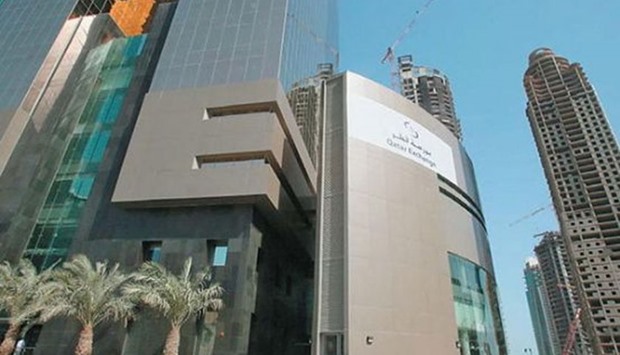Trade turnover and volumes, however, declined – mainly on banking, realty, transport and insurance -- during the week, which saw Qatar bagging the 18th position in the world in global competitiveness in 2016-17 by World Economic Forum.
Buying interests in the industrials and transport counters helped the Qatari bourse stay afloat in the positive trajectory during the week which saw a Kamco Research report say that the GCC (Gulf Cooperation Council) budget deficits are expected to "peak" at over $153bn this year, after which it is likely to taper off but the "gap" is expected to remain over the medium term.
Micro and large cap equities found favour among investors in the market during the week which saw telecom, industrials and banking stocks together constituted more than 78% of the total trade volumes.
A considerable weakening of net selling by local retail investors and domestic institutions helped lift the QSE during the week, which saw Islamic stocks gaining faster than the conventional ones.
Notwithstanding foreign institutions’ weakened net buying and non-Qatari individual investors’ bearish outlook, the QSE’s 20-stock Qatar Index settled 0.22% higher during the week which saw Qatar’s producer price index fall 1.5% month-on-month in July on lower prices for hydrocarbons, refined petroleum products, basic chemicals, cement and electricity.
The marginal gains the QSE during the week came amidst an overall bearish run in the GCC equity landscape as Saudi Arabia tanked 5.47%, Dubai (1.12%), Muscat (0.69%), Abu Dhabi (0.42%) and Kuwait (0.14%); even as Bahrain was the largest gainer at 1.37%.
The Qatari bourse’s year-to-date gains were contained at mere 0.06% compared to 10.26% in Dubai, 5.92% in Muscat and 3.93% in Abu Dhabi; whereas Saudi Arabia plunged 18.64%, Bahrain (5.42%) and Kuwait (3.86%).
Opening the week strong at 10,435 points, the market kept gaining for the second day to reach a high of 10,510 points, after which it was consistently on a decline but overall it settled 23 points higher during the week.
Tracking the main barometer, the 20-stock Total Return Index gained 0.22%, All Share Index (comprising wider constituents) by 0.07% and Al Rayan Islamic Index 0.49% during the week which saw Vodafone Qatar, Qatari Investors Group, Masraf Al Rayan and Industries Qatar dominate the trading ring in terms of volume and value.
Industrials stocks surged 2.29%, transport (1.95%) and insurance (0.14%); while telecom fell 2.19%, consumer goods (1.82%), real estate (1.67%) and banks and financial services (0.11%) during the week which saw Qatar’s August trade surplus register a robust 30% jump month-on-month to QR8.69bn as exports grew faster and import shrank.
Market capitalisation gained 0.2% or more than QR1bn to QR560.74bn as micro, large and midcap equities rose 0.69%, 0.31% and 0.06% respectively; even as small caps shrank 0.79% during the week.
Large cap equities have reported 0.99% year-to-date gains; while small, mid and microcaps were seen declining 5.17%, 4.45% and 0.26% respectively.
Of the 44 stocks, as many as 21 declined, while 19 advanced, three were unchanged and one was not traded during the week. Five each of the 13 banks and financial services and the nine industrials; all of the three transport; two each of the eight consumer goods and the five insurers; and one each of the four real estate and the two telecom stocks closed higher during the week.
About 49% of the stocks extended gains with influential movers being Industries Qatar, Aamal Company, Milaha, Qatar Islamic Bank, Aamal Company, Dlala, Qatari Investors Group and United Development Company; even as Ooredoo, Ezdan, QNB, al khaliji, Islamic Holding Group and Salam International Investment saw their equities lose sheen during the week.
Local retail investors’ net profit booking declined substantially to QR74.42mn against QR146.04mn the ended September 22.
Domestic institutions’ net selling weakened to QR121.89mn compared to QR192.16mn the previous week.
However, foreign institutions’ net buying declined perceptibly to QR200.7mn against QR333.08mn the week ended September 22.
Non-Qatari individual investors turned net sellers to the tune of QR4.4mn compared with net buyers of QR5.12mn the previous week.
Total volume fell 50% to 29.52mn shares, value by 60% to QR1.13bn and transactions by 46% to 15,552 during the week.
There was 78% plunge in the insurance sector’s trade volume to 0.4mn equities, 80% in value to QR30.88mn and 70% in deals to 453.
The consumer goods sector’s trade volume plummeted 75% to 0.7mn stocks, value by 80% to QR43.09mn and transactions by 40% to 941.
The banks and financial services sector saw 67% shrinkage in trade volume to 6.85mn shares, 75% in value to QR317.32mn and 49% in deals to 4,605.
The real estate sector’s trade volume tanked 67% to 3.71mn equities, value by 66% to QR86.44mn and transactions by 41% to 2,100.
The market witnessed 63% decline in transport sector’s trade volume to 1.65mn stocks, 62% in value to QR54mn and 58% in deals to 1,035.
The industrials sector’s trade volume shrank 19% to 7.25mn shares, value by 17% to QR437.24mn and transactions by 36% to 3,928.
The telecom sector reported 5% fall in trade volume to 8.97mn equities, 48% in value to QR158.58mn and 43% in deals to 2,490.
In the debt market, there was no trading of treasury bills and government bonds during the week.

